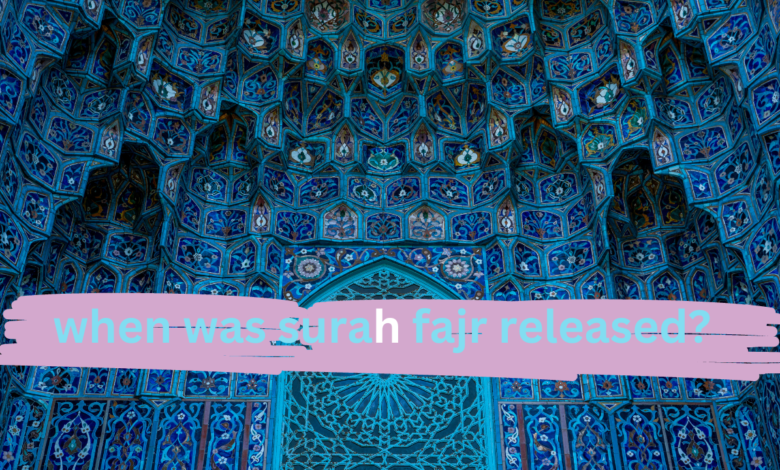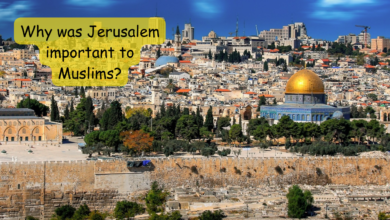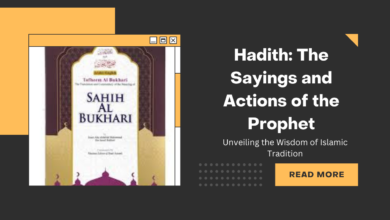when was surah fajr released?

Introduction:
Surah Fajr, the 89th chapter of the Quran, is a powerful and evocative revelation that holds a deep and profound message for Muslims. Its verses encompass themes of warning, retribution, and hope, making it an essential part of the Quranic teachings. This article aims to explore the circumstances and historical context surrounding the revelation of Surah Fajr, shedding light on the timeless wisdom it imparts to believers.
The Revelation of Surah Fajr:
Surah Fajr was revealed during the early period of Prophet Muhammad’s (peace be upon him) mission in Makkah. The exact date of its revelation is not explicitly mentioned in historical records, but it is believed to have been revealed before the migration of the Prophet (peace be upon him) to Madinah.
Context and Themes:
The Surah begins with an oath, as is characteristic of several chapters in the Quran. Allah swears by the dawn (Fajr) and ten nights (89:1-2), symbolizing the passage of time and the importance of specific periods in history. Many Islamic scholars interpret these ten nights to refer to the last ten nights of Ramadan, emphasizing their significance and the heightened spiritual blessings they carry.
The Surah then proceeds to recount the story of the people of Thamud, who were prosperous but turned away from Allah’s guidance and oppressed the Prophet Salih (peace be upon him), who was sent to them as a messenger (89:6-14). The Thamud people’s arrogance and refusal to accept the message led to their destruction, emphasizing the theme of divine retribution for those who reject the truth.
The Surah also draws attention to the fate of Pharaoh and the people of Egypt who were similarly arrogant and tyrannical, defying Prophet Moses (peace be upon him) and his message (89:15-16). Their demise serves as a lesson and a warning to future generations about the consequences of cruelty and injustice.
Moreover, Surah Fajr highlights the concept of gratitude and the importance of acknowledging and appreciating Allah’s blessings. It mentions the story of the people of ‘Aad, who were blessed with immense power and resources but ultimately became ungrateful (89:7-8). Their ingratitude led to severe punishment, reinforcing the need for humility and gratitude.
Hope and Lessons:
Despite the warnings of divine punishment, Surah Fajr offers hope and redemption to those who believe and perform righteous deeds. The Surah concludes with an assurance of Allah’s mercy and His reward for the righteous (89:27-30). It encourages believers to maintain patience and perseverance in the face of adversity, trusting in Allah’s plan and ultimate justice.
Lessons from Surah Fajr resonate with Muslims worldwide, reminding them of the consequences of arrogance, oppression, and ingratitude, while also offering hope and redemption through sincere faith and righteous deeds.
Conclusion:
Surah Fajr, revealed during the early days of Islam in Makkah, is a powerful chapter of the Quran that encompasses profound themes of warning, retribution, gratitude, and hope. Its verses recount the stories of past civilizations and the consequences they faced for their actions, serving as both a lesson and a warning for present and future generations. Muslims find guidance and solace in its teachings, using it as a source of inspiration to live a life of humility, gratitude, and righteousness. Surah Fajr’s timeless message continues to resonate with believers, fostering a deeper understanding of their faith and a closer connection to the divine.






